HS-PS2-1
Analyze data to support the claim that Newton's second law of motion describes the mathematical relationship among the net force on a macroscopic object, its mass, and its acceleration.
-
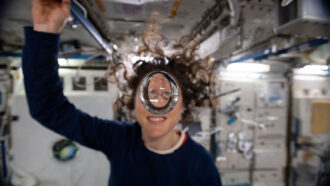 Physics
PhysicsExplainer: Gravity and microgravity
The force of gravity holds us on the ground, keeps planets in orbit and extends throughout space. A very weak gravitational pull is called microgravity.
By Trisha Muro and Bethany Brookshire -
 Physics
PhysicsScientists Say: Mass
Mass shows how much an object resists speeding up or slowing down when force is applied — a measure of how much matter is in it.
-
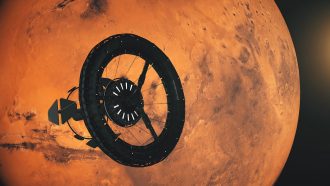 Physics
PhysicsStaying grounded in space requires artificial gravity
On TV, people in space walk around like they’re on Earth. How can science give real astronauts artificial gravity? Spin right round, baby.
-
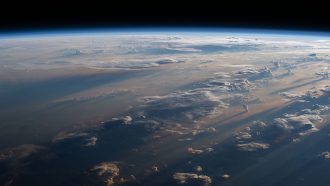 Physics
PhysicsLight levitation might help explore Earth’s ‘ignorosphere’
A toy called a light mill inspired researchers to invent a new way to fly. They’re using light to levitate small nanotube-coated discs.
-
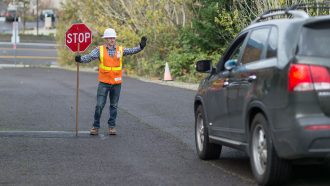 Physics
PhysicsScientists Say: Acceleration
Acceleration is a change in velocity. That could mean a change in speed or in direction.
-
 Physics
PhysicsResearchers reveal the secret to the perfect football throw
The tip of a spiraling football follows the ball’s path. If you know a thing or two about gyroscopes, this is not what you’d expect.
-
 Physics
PhysicsScientists Say: Velocity
Velocity is more than speed. It is both speed and the direction in which an object is traveling.
-
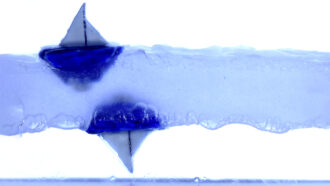 Physics
PhysicsHow physics lets a toy boat float upside down
Buoyancy’s upward force keeps objects afloat even in unusual conditions.
-
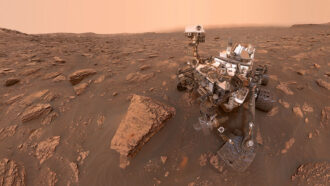 Tech
TechLet’s learn about space robots
Space robots can take pictures of other planets, analyze samples of their surface and even peer into their interiors.
-
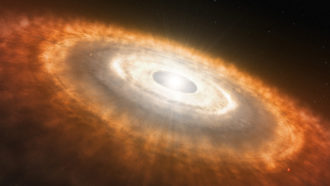 Planets
PlanetsGlass beads help scientists puzzle out how baby planets grow
Researchers have mimicked the first stages of planet formation in the lab. All they needed were glass beads and a catapult.
-
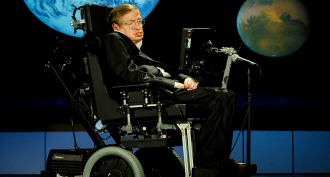 Physics
PhysicsDisabilities don’t stop these experts in science and tech
People with disabilities are as varied as the careers some of them pursue in science, technology, engineering and math.
-
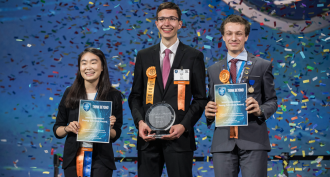 Tech
TechTeens garner some $4 million in prizes at 2017 Intel ISEF
Hundreds of teens collectively took home about $4 million in awards from the Intel International Science and Engineering Fair this week.
By Sid Perkins